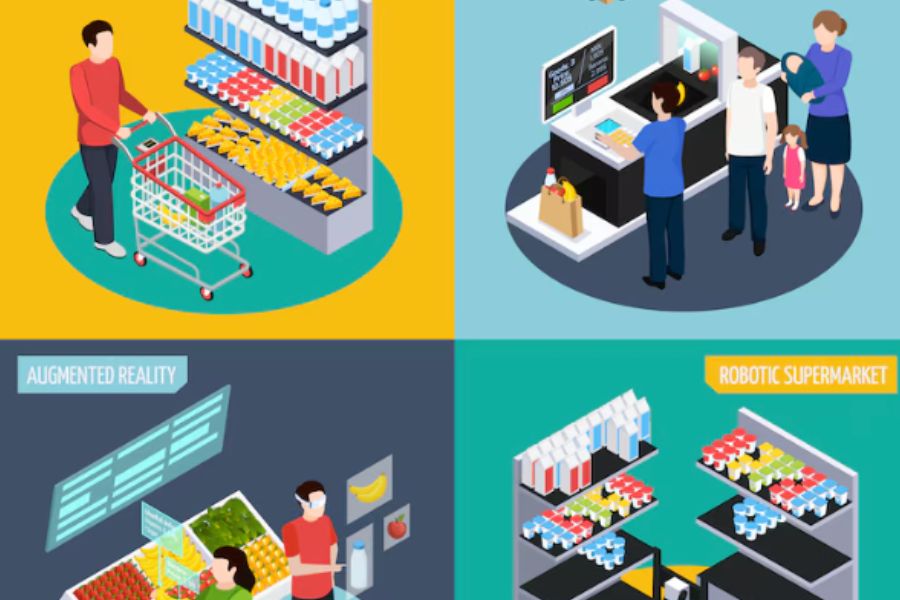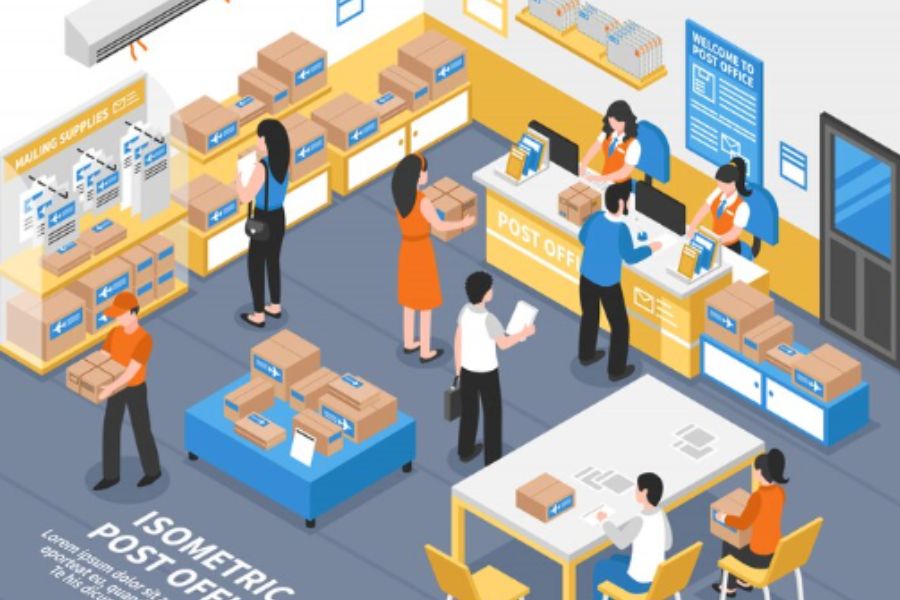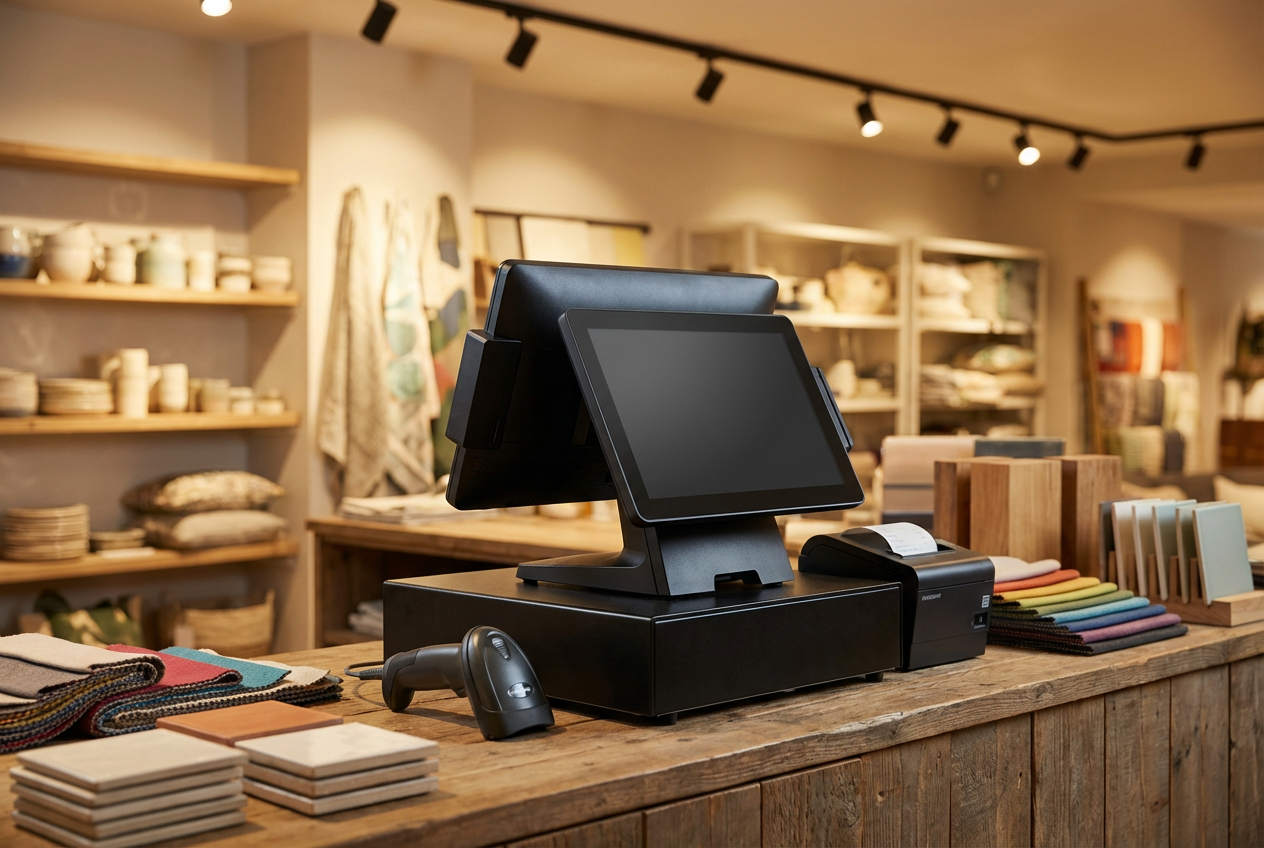Retailers with multiple locations need a system that can manage inventory, sales, and customer data in one place. A multi store POS open source solution provides that functionality with the added benefit of full customization and no licensing restrictions. But is it the right approach for every retailer? Going open source may sound appealing, especially when budgets are tight or custom workflows are involved. Still, the technical demands and long-term upkeep can quickly become a challenge without the right resources.
This guide will walk you through the core characteristics of a multi store POS opens ource system, explain what open source software really means, help you decide if it’s a smart fit for your retail operations, and introduce alternative options, especially if you need flexibility without added complexity.
Highlight:
- Open source POS systems allow multi-store retailers to tailor software features to specific needs and reduce upfront costs, offering significant flexibility in adapting workflows and managing multiple locations.
- Implementing open source POS requires technical knowledge for installation, customization, and integration with other systems, posing potential difficulties for retailers without dedicated IT support.
What Are the Characteristics of a Multi Store POS?
A good multi store POS brings together key operational areas and keeps everything running smoothly across multiple outlets, whether you’re managing five locations or fifty.
- Centralized Management
With centralized control, you can oversee pricing, product catalogs, promotions, and staff permissions from a single admin panel. This reduces manual updates and helps maintain brand consistency across all stores.
- Real-Time Data Sync
Changes in one store, like a sale, return, or inventory update, sync automatically with the rest of the system. This real-time visibility helps prevent stockouts, double selling, and delays in reordering.
- Multi-Location Inventory Tracking
Tracking inventory by location is essential. A multi store POS should allow you to view stock levels, automate transfer orders, and set different reorder points per branch. This keeps each store properly stocked and responsive to local demand.
- Consistent Customer Experience
Integrated customer profiles and loyalty programs mean shoppers can earn or redeem rewards no matter where they shop. Consistency like this builds trust and keeps customers coming back.
- Consolidated Reports and Insights
Robust reporting tools let you compare performance across branches, track top-selling items, and spot trends by region or time period. This data helps store managers and HQ make smarter decisions faster.
- Cross-Channel Compatibility
Many retailers today sell not just in-store, but online and through social platforms. A strong multi store POS system should be able to sync with your eCommerce store, so inventory, orders, and customer data stay updated across all channels.
What Is Open Source Software?
Open source software refers to programs whose source code is made publicly available. That means anyone—developers, retailers, or third-party partners—can view, modify, and customize the software to fit their specific needs.
►►► Optimal solution set for businesses: Multi store POS, Next-gen POS, Inventory Management Software (MSI), Self Service, Automation, Backorders
In the POS world, open-source systems give businesses more freedom to tailor the software to their specific operations. But there are pros and cons to consider.
What You Gain
- Control over Features: You can adapt the system to fit your exact workflows, from custom reporting to new integrations.
- Lower Licensing Costs: Most open source POS platforms are free to download and use, which can reduce upfront expenses.
- Community Contributions: Many projects are supported by developers who build plugins, share fixes, and contribute improvements regularly.
- Custom Security Setup: You decide how data is stored, accessed, and protected – necessary for compliance or sensitive environments.
What You’ll Need
- Technical Skills: Setting up and maintaining an open source POS often requires in-house developers or outsourced IT support.
- Time for Maintenance: Updates, bug fixes, and security patches may not be automatic. You’ll need to manage those yourself.
- Understanding of Licenses: Open source doesn’t mean no rules. Some licenses come with requirements that affect how you use or distribute the software.
Should Multi Store Businesses Use Open Source POS?
A multi store POS open source setup gives you unmatched flexibility, but that comes with added responsibility. It’s not the right choice for every retailer, especially if you’re short on technical resources or need fast deployment.
When It Works Well
- You have an in-house development team or a reliable third-party tech partner.
- Your business needs features not available in off-the-shelf systems.
- You want a system that grows with your operations, without vendor lock-in.
- You’re comfortable handling updates, integrations, and custom modules over time.
When It Might Not Be Worth It
- You don’t have IT support and prefer plug-and-play solutions.
- You need fast, responsive customer service to troubleshoot issues.
- You’re looking for a system that integrates easily with tools like accounting software, eCommerce platforms, or CRM apps.
- You want predictable costs and fewer technical surprises.
Alternative Options for Multi Store POS Open Source
ConnectPOS: A Scalable Option for Multi-Store Retailers
ConnectPOS is a cloud-based POS solution designed for growing retail businesses, including those with multiple store locations. It combines the customization potential of open source with the convenience of managed software. With ConnectPOS, retailers get real-time sync across online and offline stores, centralized inventory control, and flexible reporting—all without needing to build from scratch.
Some of the standout features for multi-store retailers include:
- Cross-location Inventory View: Easily manage stock levels, transfers, and reorders across branches.
- Omnichannel Integration: ConnectPOS seamlessly integrates with popular eCommerce platforms, including Shopify POS, Magento POS, and WooCommerce POS.
- Hardware Compatibility: Supports a wide range of POS hardware, including receipt printers, barcode scanners, and mobile devices.
- Role-Based Access: Manage staff permissions per store or function to improve security and efficiency.
- Comprehensive Reporting: Track performance by region, product, or staff member with export-ready dashboards and analytics.
Better yet, the platform comes with dedicated support teams and detailed documentation, making it easier to implement and maintain, even without a technical background.
Other Commercial Alternatives
If ConnectPOS isn’t the right fit, there are other commercial multi store POS systems that provide similar benefits:
- Lightspeed Retail: Known for its inventory and analytics features, especially in fashion and lifestyle segments.
- Vend by Lightspeed: Offers intuitive multi-store controls and flexible integrations.
- Square for Retail: Simple and low-cost option, best for smaller retailers with limited technical needs.
These systems may not be open source, but they do provide open APIs, modular features, and scalable pricing that align with multi-store growth strategies.
FAQs: Multi store POS Open Source
- Is open source POS safe for handling customer payment data?
Yes, with the right configuration and security practices, open-source POS systems can securely handle payment data. It’s essential to:
- Use encrypted connections (SSL/TLS)
- Comply with PCI-DSS standards
- Implement role-based access controls
- Regularly update and patch the software
- Can I use open source POS without coding knowledge?
While basic use may not require coding, significant customization and system integration usually demand some level of technical expertise. However, many open-source platforms have user-friendly interfaces and documentation to help non-technical users operate core functions.
- What are the best open source POS systems for retail chains?
Top choices include:
- Odoo POS: Highly modular, suitable for both small and large enterprises with advanced inventory features.
- uniCenta: A versatile POS with multi-terminal and multi-location capabilities.
- Floreant POS: Ideal for restaurants but customizable for retail with inventory and reporting tools.
- Chromis POS: Java-based with user-friendly features and kitchen display support.
Conclusion
A multi store POS open source system provides flexibility, cost control, and customization for retailers with multiple locations. However, it also requires technical skills, time, and resources to manage effectively. Retailers without in-house IT support or integration experience may face difficulties during setup and maintenance. If your business needs centralized control and real-time data sync without the technical burden, platforms like ConnectPOS provide a practical alternative. Start by reviewing your operational needs, system compatibility, and technical capacity before choosing the best-fit POS solution.
If you’re looking for a flexible and feature-rich POS solution that seamlessly integrates with your existing systems, ConnectPOS is a powerful option. For more information or assistance, feel free to contact us and explore how we can help streamline your multi-store operations.
►►► Optimal solution set for businesses: Shopify POS, Magento POS, BigCommerce POS, WooCommerce POS, NetSuite POS, E-Commerce POS



